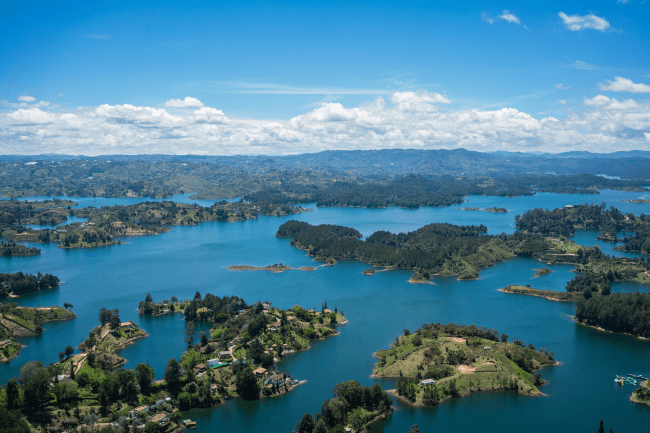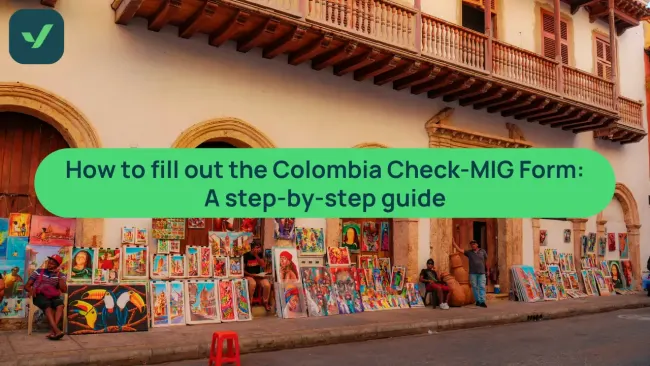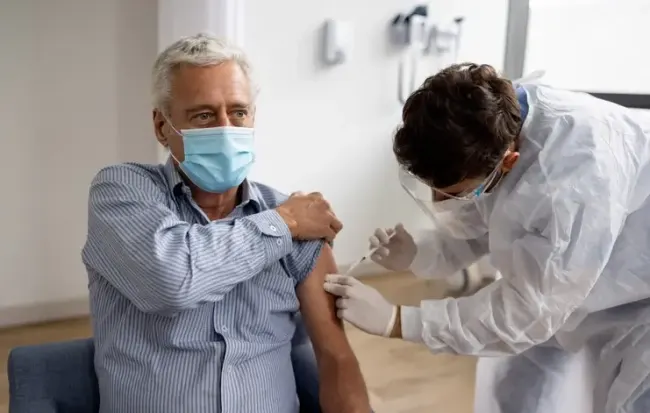
Colombia
Welcome to Colombia
Traveling to Colombia? You may need a visa – find out if you do, which type, and how to apply so you can get the paperwork out of the way and focus on your trip.
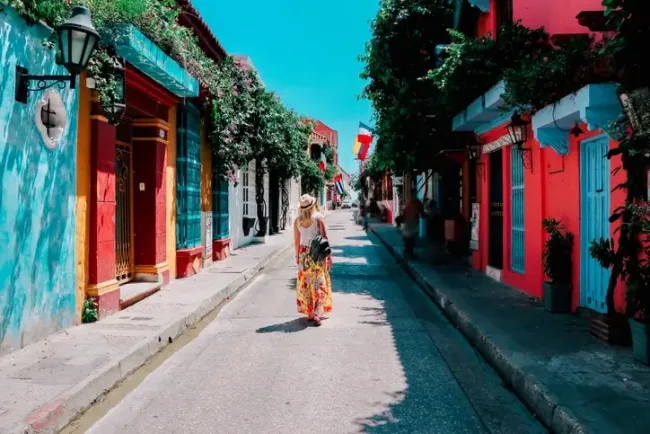
What’s the Colombia Check-MIG Form, and who’s it for?
Who’s the Colombian Check-MIG Form for?
All travelers must have completed this form before they board their flight to Colombia. You'll also need to complete the form on departure from Colombia.
What’s the purpose of the Colombian Check-MIG Form? This Check-MIG is meant to declare your visa status and any health issues before entering the country.
How long can you stay with a Colombian Check-MIG Form?
It’s valid for a Single entry to Colombia, so you’ll have to fill out the Check-MIG every time you want to enter or exit the country.
What’s the Colombia Visitor Visa (Type V), and who’s it for?
Who’s the Colombian Visitor Visa (Type V) for?
This visa caters to travelers from countries needing a visa for Colombia or those wishing for a longer stay.
What’s the purpose of the Colombian Visitor Visa (Type V)? Tourism, retirement (rentista), airport transit, working in the country as a digital nomad, tourism, business transactions, journalism, study exchange programs, traineeships, medical treatment, volunteering, working holiday, and business.
How long can you stay with a Colombian Visitor Visa (Type V)?
The validity of the Embassy Visa is typically 90 days per entry, but in some situations, you can get it for up to two years.
At iVisa, we currently don’t offer the Colombia Visitor Visa (Type V), but you can find out more from the Colombia Embassy or Consulate near you.
What are the Colombian long-term visa options?
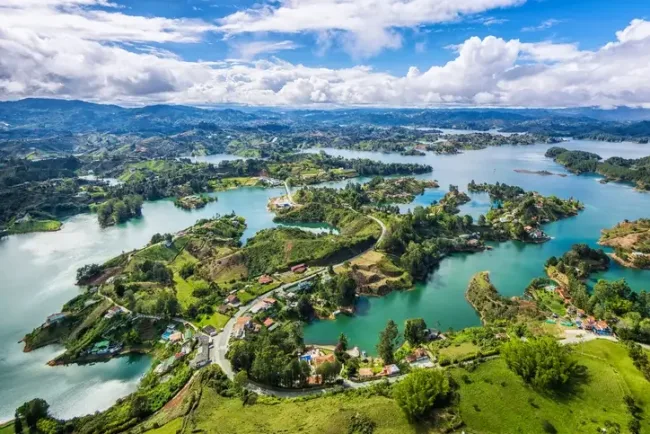
Colombia offers several long-term visa options for various purposes, such as employment, study, business, and residence. Here are some common long-term visas:
-
Colombia Migrant Visa (Type M): If you're considering making Colombia your home for an extended period, the Colombian Migrant Visa is for you. In this category, you’ll find various options, such as the Marriage Visa, Work Visa, Student Visa, Investment Visa, Retirement Visa, and Refugee Visa.
-
Colombia Resident Visa (type R): A Colombian Resident Visa is designed for those who want to live and work in the country permanently.
Staying healthy in Colombia: Here’s what you need to know
Colombia's healthcare system has made significant strides over the past few decades and is often regarded as one of the better systems in South America. Here's what travelers should know.
Make sure to stay updated on routine vaccines
-
Consider vaccines for diseases like measles-mumps-rubella (MMR) and diphtheria-tetanus-polio.
-
Depending on your country of origin, travelers staying in Colombia for a month or more should note that you may need an International Certificate of Vaccination or Prophylaxis (ICVP) as proof of polio vaccination.
-
A yellow fever vaccination certificate is required for travelers aged 1 year or older traveling from an area with a risk of yellow fever transmission, including layovers.
-
Keep updated with Colombia's COVID-19 requirements, such as quarantine, testing, or vaccine certificates, through your airline or the Colombian government website.
Medical facilities
-
Colombia's major cities like Bogotá, Medellín, Cali, and Cartagena have well-equipped, modern hospitals and clinics that offer various medical services, including specialized care.
-
Pharmacies are widespread and can be found throughout Colombia, even in smaller towns.
-
Colombia is a growing destination for affordable medical tourism, especially for procedures like cosmetic surgery and dental care.
Health insurance
We’d always recommend taking out health insurance before you travel anywhere from any destination.
All the major cities in Colombia will have private medical care, but it’s expensive. You should choose travel insurance with high medical limits.
Contact your insurance provider before traveling to make sure you have the right level of coverage.
Other things to consider:
-
Trip cancellation, delay, and interruption benefits.
-
Medical expenses and medical evacuation benefits.
-
Baggage coverage.
Things to be aware of when visiting Colombia
Keep an extra eye on the following to keep healthy and safe during your trip to Colombia:
1. Food and water safety: It's essential to drink bottled or boiled water, avoid ice, and eat well-cooked foods. Avoiding street food or unpasteurized dairy products can also reduce risk.
2. Mosquito-borne illnesses: Dengue fever and malaria are present, especially in the Pacific Coast, Amazon, and Orinoquía regions. Travelers should consider taking prophylactic medications and always use insect repellent, bed nets, and long-sleeved clothing in areas of risk.
Medication for personal use
Follow these tips to bring over-the-counter medicines into Colombia:
-
Declare all medications: Report all medication for personal use to customs authorities.
-
Original packaging: Always keep medicines in their original containers and in transparent bags in your hand luggage.
-
Prescription or doctor's letter: Present the medical prescription issued by your doctor or other competent authority, in English.
-
Check for restrictions: Call Colombia's embassy to verify that all of your prescription(s) are legal to bring with you.
-
Quantity aligned with itinerary: Bring only a reasonable quantity that aligns with your stay duration to avoid complications.
-
Illegal drugs: Don’t get involved with illegal drugs of any kind. Local drug trafficking detection methods are sophisticated, and anyone buying or trafficking drugs should expect to be arrested.


 Australia ETA Online
Australia ETA Online
 United Kingdom ETA
United Kingdom ETA
 India Tourist eVisa
India Tourist eVisa
 Canada ETA Visa
Canada ETA Visa
 Turkey eVisa
Turkey eVisa
 Egypt eVisa
Egypt eVisa
 Singapore SG Arrival Card
Singapore SG Arrival Card
 Indonesia eVoa Visa
Indonesia eVoa Visa
 Aruba ED Card
Aruba ED Card
